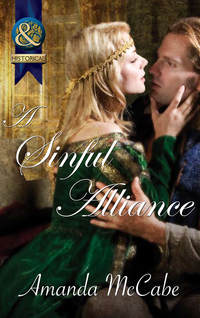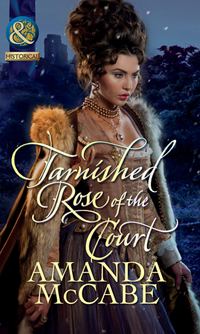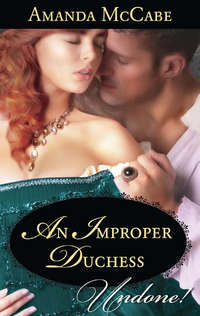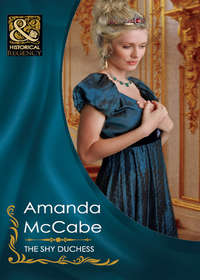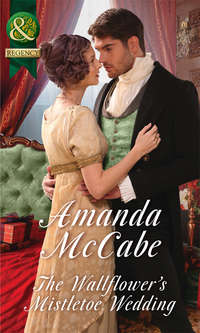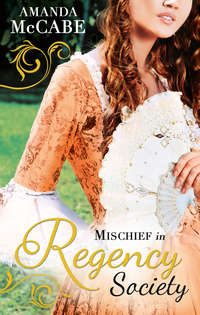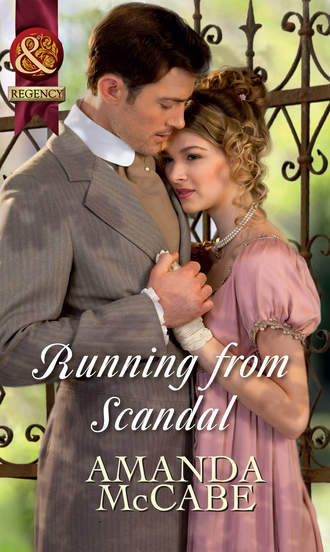
Полная версия
Running from Scandal
‘I don’t need a hoop, Papa.’ She turned her attention to the scenery, to the scattered cottages that marked the edge of the village and the square, stone bell tower of the church.
It hadn’t always been like that, David thought with a feeling surging through him that felt near desperation. Once Bea had run through the house as lively and laughing as any of the village children. She had thrown herself into his arms, giggling as he twirled her around. She’d served him tea at her tiny table in her tiny porcelain cups, chattering all the time.
Until her mother died. No—he had to say it honestly, at least to himself. Until her mother left them, ran off with her lover, only to be killed with him when their carriage overturned on a rocky Scottish road. Bea knew nothing of that sordid tale. David had only told her Maude had become very ill and gone to take the waters, where she passed away. But ever since then Bea had withdrawn deep into herself, quiet as one of her precious dolls.
David hoped that leaving London permanently and coming home to Rose Hill, near his sister and her family, would bring her out of her shell again. Surely children thrived in fresh air and clear skies? Yet it only seemed to make Bea even quieter.
David liked to be in control of his world; he needed that. He was good at business, at running his estate, improving crop yields, taking care of his tenants and his family. When their parents died, he took care of his sister until she married. He had been a good son, a good brother, and he prided himself on that. He had even been a good husband, had given up his brief wild period of gambling and other women, and devoted himself to his wife. He had seen where such a rakish life led and he hadn’t wanted it for himself in the end.
Why, then, had he failed so badly as a husband, and now as a father?
As he looked at his daughter now, her little back so straight as she perched next to him on the seat, his heart ached with how much he loved her. How much he wanted to help her and could not.
The anger he had long felt towards Maude, which he had tried to shove away and forget, still came out when he saw how Bea had become. Maude—so pretty, so charming. So frivolous. In the beginning, she looked suitable to be his wife, until he found her charm masked desperate emotionalism, a heedless romanticism that made her utterly abandon her family and duties. Just as he had once come so close to doing.
‘You should marry again,’ his sister told him over and over. ‘If Beatrice had a new mother, and Rose Hill had a proper mistress, all would be well. What about Lady Penelope Hader? Or Miss King?’
He had taken Louisa’s advice the first time and married her good friend Miss Cole. He should not look twice at any of her candidates again. But she was right about one thing—some day he would have to marry again. But this time he would find a lady of good, solid sense and impeccable reputation and family. A lady who would join him in his duties and be content with a quiet, solid country life.
He was absolutely determined on that. He, and more importantly Beatrice, needed no more romantic adventurers in their lives.
The village was busy on such a fine day. The narrow walkways were crowded with people hurrying on their errands, and the doors and windows to the shops were flung open to let in the fresh breeze. There seemed to be a new energy in the air that always came with the first signs of green, growing things—an invigorated purpose.
David wished he could feel it too. That new, fresh, clean hope. Yet still there was only a strange numbness at his core.
Work was the answer. The forgetfulness of purposeful work. He left the curricle at the livery stables and took Bea’s lace-gloved hand in his to lead her out into the lane. She went with him without a murmur, her doll tucked under her other arm.
‘I won’t be long at the lawyer’s office, Bea,’ he said. ‘If you don’t want to visit the toy shop, perhaps we could get a sweet afterwards? You haven’t had one of those lemon drops you like in a while.’
‘Thank you, Papa,’ she murmured.
Their progress down the street was slow, as several people stopped David to offer him greetings or ask questions about his plans for Rose Hill. He hadn’t been home long enough for curiosity to fade about his London scandal, and he could almost feel the burn of curiosity in people’s eyes as they talked to him. He could hear the careful tones of their voices, from people he had known since he was a child.
Even here the upheaval of his life couldn’t quite be forgotten.
As they walked past the assembly rooms, he heard his sister’s voice call out to him.
‘David, dearest! I didn’t know you were coming to the village today. You should have sent me word and I would have made you dine with us before you go back to Rose Hill,’ Louisa cried.
David turned to see his sister hurrying toward him, her two little sons tumbling after her and her pregnant belly before her. The boys were shoving and tripping each other, as they so often did, and David felt Bea stiffen next to him.
‘I didn’t want you to go to any trouble, Louisa,’ he said as he kissed her offered cheek under the flowered edge of her bonnet.
‘No trouble at all. We see you too seldom,’ Louisa answered. She carefully bent down and embraced Bea, who still held her little body very still. ‘And how lovely you look today, Beatrice! My, but I do hope this one will be a girl. Boys, stop that fighting right now! Bow to your uncle.’
As the boys quickly bowed and muttered before shoving each other again, Louisa whispered in David’s ear, ‘Beatrice is looking awfully pale, isn’t she? You should leave her with me while you conclude your business, she can play with her cousins. I’m sure she is too much alone at Rose Hill.’
Beatrice seemed to hear her and gave David an alarmed glance. ‘Thank you for the kind offer, Louisa, but we must return home very soon today. Another time, I promise.’
Louisa sniffed. ‘As you like, of course. But you know what Rose Hill and Beatrice need is more children running about the halls there! New little siblings, as you and I were. Have you met Miss Harding yet? She has come to stay with her uncle, Admiral Harding, and I quite admire her already. So pretty, so steady. Just what you need.’
Bea didn’t say anything, or even move, but David felt her hand tighten on his. ‘No, I have not yet met Miss Harding.’
‘Then you must come to the assembly next week. She is sure to be there and I have sung your praises to her already.’
‘I still have so much work to do at Rose Hill...’
‘Don’t say you must work all night as well as all day! You must get out in the world again, David. It would do you so much good. And you will never find a wife if you stay alone at Rose Hill all the time. Will he, Beatrice darling?’
‘No, Aunt Louisa,’ Bea said dutifully.
‘Of course not. Now, David, let me tell you about Miss Harding...’
Louisa went on talking, but David’s attention was suddenly captured by a figure hurrying along the walkway on the other side of the street.
She wasn’t very tall, but was very straight and slender, with an elegant bearing and purpose to her step that seemed somehow familiar. Yet he was sure she couldn’t be someone he knew, for she wore a black gown and pelisse and a plain black bonnet, and there were no recent widows in the village. Still, something about her compelled him to keep watching. Something vital and almost magnetic, something—alive.
David suddenly realised he hadn’t felt alive in a very long time. Hadn’t felt captured by something as he was by the glimpses of the lady in black.
Others, too, watched her as she passed them, turned to stare at her, stopped in their tracks. But only a few actually offered her a greeting.
She stopped at the window of Mr Lorne’s bookshop and, as she turned to examine the haphazard display of dusty volumes behind the cloudy glass, David caught a glimpse of her pale profile against the black ruching of her bonnet, as pure and perfect as a Grecian coin.
‘Emma Bancroft,’ he whispered, shocked by the sight of her. Now that he saw her again, he was surprised at how completely he recalled a girl he hadn’t glimpsed in years. But where he felt a hundred years older than the man he had been at that long-ago assembly, Emma Bancroft looked exactly the same. Golden, sunny curls, a straight little nose dusted with pale amber freckles, rosebud lips curved in a smile as she studied the books. She looked just as young, just as eager to run out and grab life.
Yet she, too, must have faced a great deal since they last met, swathed in black as she was. She pushed open the door to the shop and vanished inside, and David’s strangely silent, suspended moment crashed around him. The noisy bustle of the crowd. Bea’s hand in his. The ceasing of his sister’s stream of chatter.
‘Oh, yes,’ Louisa said with another sniff. ‘Emma Bancroft. I did hear she had returned to Barton Park, though I’m surprised her sister would have her back after everything that happened. Hardly befitting the sister-in-law of an earl.’
David gave her a curious glance and Louisa smiled smugly. She always liked having gossip other people did not and David had lived buried in his own business since he came home. ‘You will remember, I am sure, David. Or perhaps you won’t, you are always so very busy. Do you not recall her infamous elopement with Mr Henry Carrington?’
David did remember vague whispers about it all. Emma Bancroft eloped with a known rake in her first Season, against her sister’s advice. Word of it had floated all the way from London back to Rose Hill, everyone saying how sad it was, but really not very surprising. Miss Bancroft, after all, had always been such an odd girl with strange fancies. Other scandals soon eclipsed it, and by the time David went to London with Maude and their new baby there were only a few titters about Lady Ramsay’s wayward sister. He assumed the rake and Miss Bancroft had settled into a reasonable marriage, away from England.
And Maude’s own scandal soon quite overtook everything else. But David felt strangely disappointed when he remembered Miss Bancroft’s—Mrs Carrington’s—true nature. For an instant there, he was actually happy to glimpse her coming down the street, felt a rush of hope. Now the sunny, lively vibrancy he had imagined seemed more hoydenish and dangerously unpredictable.
He couldn’t afford any more scandal in his life. Either his own or that of others.
‘They say Mr Carrington died in a duel somewhere in France,’ Louisa said. ‘Now I suppose Lady Ramsay has no choice but to shelter her sister.’
As David had always had no choice in his own family? Faintly irritated, he said, ‘Perhaps you think she should have left her sister in a Parisian workhouse.’
‘David! You are quite shocking today. Of course Lady Ramsay had to take Mrs Carrington in, though it would have been more politic of Mrs Carrington to stay away after the stir she caused. But family is family, I suppose. I just hope she will stay quietly at Barton Park and not embarrass anyone.’
‘I must attend to my business, Louisa,’ he said, feeling the urge to defend Emma Bancroft, even from something indefensible. ‘The lawyer is expecting me so we can go over my purchase of the lands adjacent to Rose Hill.’
‘Oh, yes, of course. I know you are so terribly busy, David dear. Just don’t forget about Miss Harding! We shall all be expecting you at the assembly next week.’
Murmuring some non-committal reply, David led Bea off down the street. She went with him quietly, leaving him to brood on that glimpse of Emma Bancroft’s face. And wanting even more of what he knew he couldn’t have.
* * *
Her papa did not need another wife. At least not one her Aunt Louisa chose for him.
Bea swung her feet from the tall chair she sat perched on as she waited for her papa to conclude his business. He and the grey-haired, saggy-faced lawyer, Mr Wall, talked on and on with words she didn’t understand and the warm close air of the office smelled of old cigars and dust, but Bea didn’t care. The more they talked, and the more they ignored her as she sat quietly in the corner, the more she could watch and think.
It was a strategy that had worked very well for her since her mother went away. Things had been so very confusing for a while, the doors of the London house slamming and people coming and going at all hours. Her Grandfather Cole shouting and red-faced. Her papa, who usually played with her and laughed with her, so quiet and serious all the time.
And every time he looked at her he seemed very sad. There were no more tea parties or quiet hours for reading books together. He would send her to the park with her nanny and lock himself in the library.
And no one ever told her anything at all. Tears and shouted questions got her nothing but pitying looks and new dolls. While the dolls were nice, she still wanted to know where her mother had really gone and when her real papa was coming back to her.
That was when she learned to be quiet and watch. When she tucked herself away in corners, people forgot she was there and talked about things in quiet, calm ways with no baby-speak. Bea hated baby-speak. Her father had never spoken to her that way and most grown-ups had long ago given it up with her, until her mother left. Then no one talked to her any other way.
Especially Aunt Louisa. Bea sighed as she smoothed her doll’s silk skirt and thought of Aunt Louisa. She was a very good sort of aunt, always kind and generous with the lemon drops, but her insistence that Bea play with her horrid sons was a nuisance. Those boys had no interesting conversation at all, and they always tried to steal her dolls. Once they even cut the curls off one, making Bea cry and Aunt Louisa scream.
Days at Aunt Louisa’s house were not much fun. Even waiting here in this dull office was better.
But what made time with Aunt Louisa even worse was that she always told Papa he should marry again as fast as possible. She even insisted Bea needed a new mother.
Bea did not want a new mother. She’d hardly ever seen the one she once had, except for glimpses out the window when her mother was climbing into a carriage to go off to a party. She’d been as beautiful as an angel, all sparkling and laughing in her lovely gowns, but not much use. Nor would a mother like Aunt Louisa be much fun, always calling for her vinaigrette when she wasn’t telling everyone what to do.
Not that Bea completely objected to the idea of a mother. Mothers in books always looked like lovely things, always tying their daughters’ hair ribbons and reading them stories. And Papa did need someone to help him smile more.
Aunt Louisa’s Miss Harding, niece of Admiral Harding, didn’t quite sound like what Bea had in mind. Anyone Aunt Louisa chose would surely be entirely wrong for Rose Hill. Bea knew she was only a little girl, but she also knew what she wanted, and what Papa needed.
She just didn’t know where to find it.
‘...in short, Sir David, the sale of the lands should go through at that price with no problems whatsoever,’ the old lawyer said. ‘Your estate at Rose Hill will be considerably enlarged, if you are sure more responsibility is what you truly desire right now.’
‘Have you heard complaints about my lack of responsibility, Mr Wall?’ Papa said, with what Bea suspected was amusement in his voice, though she didn’t understand the joke. She hoped he might even smile, but he didn’t.
‘Not at all, of course. You have a great reputation in the area as a good, and most progressive, landlord with a great interest in agriculture. Once you get those lands organised, you’ll have no trouble whatsoever leasing the farms. But there can be such a things as working too hard, or so Mrs Wall sometimes informs me.’
‘Is there?’ Papa said quietly. ‘I have not found it so.’
‘A wife, Sir David, can be a great help. The right sort of wife, of course, an excellent housekeeper, a hostess, a companion. But I fear we are boring pretty Miss Marton here! Would you care for a sweet, my dear? Sugared almonds—my grandsons love them, so I always keep them about.’
‘Thank you, Mr Wall,’ Bea answered politely. As she popped the almond into her mouth, she thought over what Mr Wall said. A hostess for Rose Hill—another thing to put on her list of requirements for a new mother.
As they took their leave of Mr Wall and stepped back out into the lane, Bea shivered at the cool breeze after the stuffy offices.
‘We should get you home, Bea, before you catch a chill,’ Papa said as he took her hand.
But Bea didn’t quite want to go back to the quiet nursery at Rose Hill just yet. Neither did she want to go visit Aunt Louisa. ‘Could we go to the bookshop first?’ she asked. ‘Maybe Mr Lorne has some new picture books from London. I’ve read everything in the nursery at least twice now.’ And Aunt Louisa and her sons never went in the bookshop. It was always quite safe.
Her papa seemed to hesitate, which was most odd, for he was usually most agreeable to visiting Mr Lorne’s shop. He glanced towards the building across the street, his eyes narrowed behind his spectacles as if he tried to peer past the dusty windows. But finally he nodded and led her across the street to the waiting shop.
Chapter Three
Emma smiled at the familiar sound of rusted bells clanking as she pushed open the door to Mr Lorne’s bookshop. It had been so long since she heard them, but once they had been one of the sweetest sounds in the world to her. They had meant escape.
Could she ever find the same sanctuary in books again? The same forgetfulness in learning? Or did she know too much about what lay outside the pages now?
As she closed the door behind her, she thought about the way people watched her as she walked down the street, silent and wide-eyed. She hadn’t left the grounds of Barton much since her arrival, wanting only the healing quiet of home. Days wandering around the rooms and gardens, reminiscing with Jane and playing games with the children, had been wonderful indeed. She’d almost begun to remember herself again and forget what she had seen in her life with Henry.
But now Jane and Hayden had gone off to London, and without them and the boisterous twins the estate was much too silent. Emma needed to purchase some things for her refurbishment of her cottage and she needed reading materials for the quiet evenings at her small fireside. That meant a trip into the village.
She hadn’t been expecting a parade to greet her, of course. She had been gone for such a long time and in such an irregular way. Yet neither had she expected such complete silence. They had looked at her as if she were a ghost.
Emma was tired of being a ghost. She wanted to be alive again, feel alive in a way she hadn’t since her marriage to Henry fell apart so spectacularly in its very infancy. She just wasn’t sure how to do that.
Mr Lorne’s shop seemed like a good place to start. Emma smiled as she looked around at the familiar space. It appeared not to have changed at all in the years she had been gone. The rows of shelves were still jammed full of haphazardly organised volumes, wedged in wherever there was an inch. More books were stacked on the floors and on the ladders.
The windows, which had never been spotless, were even more streaked with dust than ever, and only a few faint rays of daylight slanted through them. Colza lamps lit the dark corners and gave off a faint flowery smell that cut through the dryness of paper, glue and old leather. Once Emma’s eyes adjusted to the gloom, she saw Mr Lorne’s bushy grey head peeking over a tottering tower of books on his desk.
‘Good heavens,’ he said. ‘Is it really you, Miss Bancroft?’
Emma laughed, relieved that she really wasn’t a ghost after all. Someone could acknowledge her. She hurried over to shake Mr Lorne’s hand, now worryingly thin and wrinkled.
‘Indeed it is me, Mr Lorne,’ she said. ‘Though I am Mrs Carrington now.’
‘Ah, yes,’ he said vaguely. ‘I do remember you had gone away. No one pestered me for new volumes on plants any more.’
‘You were always ready to indulge my passion for whatever topic I fancied,’ Emma said, remembering her passion for botany and nature back then. Maybe she should try to find that again?
‘You were one of my best customers. So what do you fancy now?’
‘I’m not quite sure.’ Emma hesitated, studying the old shop as she peeled off her gloves. The black kid was already streaked with dust. ‘I’m refurbishing one of the old cottages on the Barton estate, but I’m not sure what I’ll do after that. I don’t suppose you ever did come across any old writings about the early days of Barton?’ Before she left home, Emma had been passionately involved in researching her family’s home, especially searching for the legendary Barton treasure. But nothing had ever come of it.
‘I don’t think so.’
‘Then maybe some novels? Something amusing for a long evening?’
‘There I can help you, Mrs Carrington.’ Mr Lorne carefully climbed down from his stool and picked up a walking stick before leading her to a shelf against the far wall. Just like always, she saw he had an organisational system understood only by himself. ‘These are some of the latest from London. But I fear I can’t help you decide what to do next any more than I can help myself.’
Emma glanced at the old man, surprised by the sad, defeated tone on his voice. The Mr Lorne she remembered had always been most vigorous and cheerful, in love with his work and eager to share the books on his shelf. ‘Whatever do you mean, Mr Lorne?’
‘I fear I must close this place before too long.’
‘Close it?’ Emma cried, appalled. ‘But you are the only bookshop in the area.’
‘Aye, it’s a great pity. I’ve loved this shop like my own child. But my daughter insists I go and live with her in Brighton. I can hardly see now and it’s hard for me to get around.’
Emma nodded sympathetically. She could assuredly see that a shop where stock required unpacking and shelving, and accounts required keeping, might be too much for Mr Lorne now. But she couldn’t bear to lose her sanctuary again so soon after refinding it.
‘That is a very great pity indeed, Mr Lorne,’ she said. ‘I’m very sorry to hear it.’
‘Ah, well, there should be plenty of books for me in Brighton, even if I have to get my grandchildren to read them to me,’ Mr Lorne said. ‘And maybe someone will want to buy this place from me and restock it with all the latest volumes.’
‘I do hope so. Though it would never be quite the same without you.’
Mr Lorne chuckled. ‘Now you’re just flirting with an old man, Mrs Carrington.’
Emma laughed in reply. ‘And what if I am? I have never met another man who could talk about books with me as you do.’
‘Then you must find a few of those novels and we’ll talk about them when you’ve read them. I’m not tottering away just yet.’
As Mr Lorne made his way back to his desk, Emma scanned the rows of titles. Mysterious Warnings. Orphan of the Rhine. They sounded deliciously improbable. Just what she needed right now. Something a bit silly and romantic, preferably with a few haunted castles and stormy seas thrown in.
She climbed up one of the rickety ladders to look for more on the top shelves, soon losing herself in the prospect of new stories. She opened the most intriguing one, The Privateer, and propped it on the top rung to read a few pages. She was soon deep into the story, until the bells jangled on the opening door, startling her out of her daydream world. She spun around on one foot on the ladder and her skirts wrapped around her legs, making her lose her balance.
For an instant, she felt the terrible, cold panic of falling. She braced herself for the pain of landing on the hard floor—only to be caught instead in a pair of strong, muscled arms.
The shock of it quite knocked the breath from her and the room went hazy and blurry as the veil of her bonnet blinded her. Willing herself not to faint, Emma blinked away her confusion and pushed back the dratted veil.


